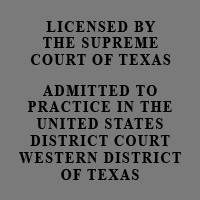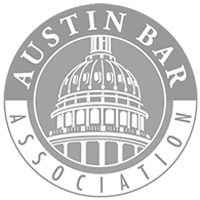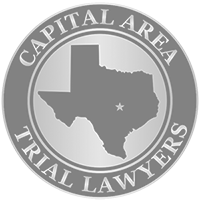Securities Fraud Whistleblower Lawyer Protects Professionals Including Corporate Officers, Financial Analysts, Brokers, and Auditors Who Want to Claim Anonymous Rewards for Exposing Securities Fraud Through Bounty Actions by Securities Fraud Whistleblower Lawyer Jason Coomer
Professionals including corporate officers, financial analysts, brokers, and accountants are encouraged to anonymously expose securities fraud schemes. Through bounty actions the SEC offers large financial rewards to individuals with original and specialized knowledge of significant illegal conduct. These bounty actions provide economic incentives and whistleblower protections to encourage high end professionals to expose significant securities fraud schemes. More specifically, these actions allow whistleblowers to expose securities fraud schemes through a securities fraud whistleblower lawyer. This whistleblower protection protects the whistleblower's identity and career. Further, by working with a securities fraud whistleblower lawyer professionals can obtain advice regarding gathering evidence of illegal conduct as well as how to handle severance agreements. For more information on anonymous bounty actions, whistelblower protections, and exposing securities fraud, please feel free to contact Securities Fraud Whistleblower Lawyer Jason Coomer via e-mail message or use our submission form.

Anonymous SEC Bounty Actions and CFTC Bounty Actions Target Securities Fraud, Commodities Fraud, and Other Market Manipulation Schemes Throughout the World
SEC Bounty Actions and CFTC Bounty Actions target illegal conduct that impacts the financial markets. The Securities Exchange Commission targets securities fraud including violations of the Securities Exchange Act. While the Commodity Futures Trading Commission CFTC targets commodity fraud including violations of the Commodity Exchange Act. Both agencies have broad jurisdiction and regulate a variety of illegal conduct that impacts the global financial markets. This jurisdiction includes targeting illegal conduct that originates in other countries, but impacts the financial markets in the United States including international market manipulations schemes, fraudulent cryptocurrency schemes, and investment fraud schemes. These bounty action rewards are available to international professionals as well as individuals in the United States with original knowledge of significant illegal conduct. For more information on international and CFTC Bounty Actions, please go to the following web pages: Anonymous International Whistleblower Bounty Actions and Anonymous CFTC Whisteblower Bounty Actions.
Illegal Sales of Stocks Can Be The Basis of SEC Bounty Actions
The SEC targets market manipulation schemes including illegal stock sales. These schemes can include international investors involved in market manipulation schemes as well as pump and dump schemes. The SEC prohibits market manipulation and recently imposed a $35 million fine on investors who secretly dumped large quantities of microcap stock. This SEC action illustrates the agency’s determination to detect fraud and protect investors. More specifically, the SEC wants to make sure more exotic and complicated ETFs are not used to manipulate the markets.
Evasion of Securities Registration Requirements Can Be The Basis of SEC Bounty Actions
The SEC also regulates securities registration requirements. Further, the SEC targets those who violate the antifraud and registration provisions of the federal securities laws and who act as unregistered broker-dealers. They also target investors engaged in other manipulative conduct. This conduct includes disguising the true sellers of securities and defrauding investors to generate illicit profits.
Securities Fraud Including Stock Fraud, Market Manipulation, and Investment Fraud Can Also Be The Basis of SEC Bounty Actions
Securities fraud, also known as stock fraud and investment fraud, is the unlawful practice of inducing investors to make investment decisions on the basis of false information, frequently resulting in losses, in violation of the securities laws. Securities fraud whistleblower lawsuits include deceptive practices in the stock and commodity markets, and occur when investors are enticed to part with their money based on fraudulent misrepresentations.
Employee Whistleblower Protection: Former and Retired Employees Retain Their Whistleblower Rights
Many employers require former employees to sign releases when they are terminated and receive severance. This whistleblower protection prevents employers from forcing employees to sign releases that waive their bounty action whistleblower rights. In fact, the SEC fines companies that attempt to force employees to waive their whistleblower rights. Former and retired employees retain their bounty action whistleblower rights regardless of the releases they have signed. In fact, if they have signed a release that takes their bounty action whistleblower rights, they should contact a lawyer to review the release.
The SEC Also Prevents Corporations from Blocking Investor Bounty Action Rights
The SEC and CFTC prohibit corporations from forcing investors signing away their whistleblower bounty action rights. In fact, the SEC recently took action against companies that attempted to force investors to sign away their rights. Further, the SEC clearly prohibits agreements preventing investors reporting potential securities law violations to law enforcement. These agreements violate the SEC whistleblower protections.
Several Types of Securities Fraud Can Be The Basis of SEC Bounty Actions
Securities fraud whistleblower lawsuits include outright theft from investors and misstatements on a public company's financial reports as well as a wide range of other actions, including insider trading, front running and other illegal acts on the trading floor of a stock or commodity exchange. Evidence for a securities fraud whistleblower lawsuit may include:
The U.S. Securities and Exchange Commission (SEC) was Created in the Wake of the Great Crash of 1929 to Restore Investor Confidence in the Financial Markets
The SEC was established by the United States Congress in 1934 as an independent, quasi-judicial regulatory agency during the Great Depression that followed the Crash of 1929. The main reason for the creation of the SEC was to regulate the stock market and prevent corporate abuses relating to the offering and sale of securities and corporate reporting.
Before the Great Crash of 1929, there was little support for federal regulation of the securities markets. This was particularly true during the post-World War I surge of securities activity. Proposals that the federal government require financial disclosure and prevent the fraudulent sale of stock were never seriously pursued. Tempted by promises of "rags to riches" transformations and easy credit, most investors gave little thought to the systemic risk that arose from widespread abuse of margin financing and unreliable information about the securities in which they were investing. During the 1920s, approximately 20 million large and small shareholders took advantage of post-war prosperity and set out to make their fortunes in the stock market. It is estimated that of the $50 billion in new securities offered during this period, half became worthless.
When the stock market crashed in October 1929, public confidence in the markets plummeted. Investors large and small, as well as the banks who had loaned to them, lost great sums of money in the ensuing Great Depression. There was a consensus that for the economy to recover, the public's faith in the capital markets needed to be restored. Congress held hearings to identify the problems and search for solutions.
Based on the findings in these hearings, Congress — during the peak year of the Depression — passed the Securities Act of 1933. This law, together with the Securities Exchange Act of 1934, which created the SEC, was designed to restore investor confidence in our capital markets by providing investors and the markets with more reliable information and clear rules of honest dealing. The main purposes of these laws can be reduced to two common-sense notions:
-
Companies publicly offering securities for investment dollars must tell the public the truth about their businesses, the securities they are selling, and the risks involved in investing.
-
People who sell and trade securities – brokers, dealers, and exchanges – must treat investors fairly and honestly, putting investors' interests first.
Organization of the U.S. Securities and Exchange Commission (SEC)
The SEC consists of five presidentially-appointed Commissioners, with staggered five-year terms (see SEC Organization Chart; text version also available). One of them is designated by the President as Chairman of the Commission — the agency's chief executive. By law, no more than three of the Commissioners may belong to the same political party, ensuring non-partisanship. The agency's functional responsibilities are organized into five Divisions and 16 Offices, each of which is headquartered in Washington, DC. The Commission's approximately 3,500 staff are located in Washington and in 11 Regional Offices throughout the country.
It is the responsibility of the SEC to:
-
interpret federal securities laws;
-
issue new rules and amend existing rules;
-
oversee the inspection of securities firms, brokers, investment advisers, and ratings agencies;
-
oversee private regulatory organizations in the securities, accounting, and auditing fields; and
-
coordinate U.S. securities regulation with federal, state, and foreign authorities.
SEC Regulation of Publicly Held Companies
The Division of Corporation Finance reviews documents that publicly-held companies are required to file with the Commission. The documents include:
-
registration statements for newly-offered securities;
-
annual and quarterly filings (Forms 10-K and 10-Q);
-
proxy materials sent to shareholders before an annual meeting;
-
annual reports to shareholders;
-
documents concerning tender offers (a tender offer is an offer to buy a large number of shares of a corporation, usually at a premium above the current market price); and
-
filings related to mergers and acquisitions.
These documents disclose information about the companies' financial condition and business practices to help investors make informed investment decisions. Through the Division's review process, the staff checks to see if publicly-held companies are meeting their disclosure requirements and seeks to improve the quality of the disclosure. To meet the SEC's requirements for disclosure, a company issuing securities or whose securities are publicly traded must make available all information, whether it is positive or negative, that might be relevant to an investor's decision to buy, sell, or hold the security.
Securities Fraud Whistleblower Lawyer Commonly Works With Professionals, Whistleblowers, and Other Lawyers Throughout The United States and the World
As a Securities Fraud Whistleblower Lawyer, Jason S. Coomer commonly works with professionals, whistleblowers, and other lawyers throughout the United States and the World.
Feel Free to Contact Us with any Questions
Associations




